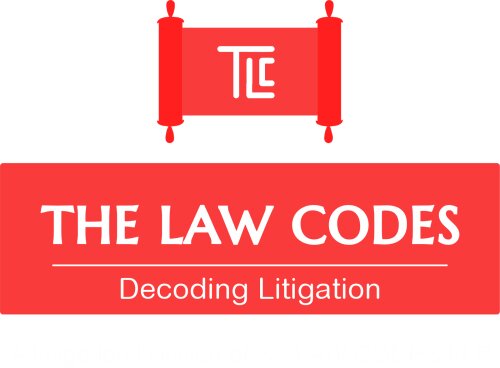Best Collaborative Law Lawyers in Chandigarh
Share your needs with us, get contacted by law firms.
Free. Takes 2 min.
Free Guide to Hiring a Family Lawyer
List of the best lawyers in Chandigarh, India
About Collaborative Law in Chandigarh, India:
Collaborative Law in Chandigarh, India is a legal process where both parties in a dispute work together to resolve their issues outside of court. This approach focuses on cooperation, communication, and problem-solving rather than litigation. Each party is represented by their own collaboratively trained lawyer, and all parties agree to work together in good faith to reach a mutually satisfactory agreement.
Why You May Need a Lawyer:
You may need a lawyer in Collaborative Law in Chandigarh, India if you are facing a family law issue such as divorce, child custody, or property division. A lawyer can help you navigate the collaborative process, protect your rights, and ensure that your interests are represented during negotiations.
Local Laws Overview:
In Chandigarh, India, Collaborative Law is governed by the Punjab and Haryana High Court Rules for Collaborative Law. These rules outline the procedures and requirements for collaborative practice in Chandigarh and provide a framework for the resolution of disputes through collaboration.
Frequently Asked Questions:
Q: What are the advantages of using Collaborative Law in Chandigarh, India?
A: Collaborative Law allows parties to maintain control over the outcome, promotes a more amicable resolution, and can be more cost-effective and efficient than traditional litigation.
Q: Can any type of dispute be resolved through Collaborative Law in Chandigarh, India?
A: Collaborative Law is typically used for family law issues such as divorce, child custody, and property division, but it can also be used for other civil disputes.
Q: How long does the Collaborative Law process in Chandigarh, India typically take?
A: The length of the Collaborative Law process can vary depending on the complexity of the issues involved and the willingness of the parties to cooperate. It can take several weeks to several months to reach a settlement.
Q: Are the outcomes of Collaborative Law in Chandigarh, India legally binding?
A: Yes, once an agreement is reached through Collaborative Law and signed by all parties, it becomes a legally binding contract that can be enforced in court.
Q: What happens if the Collaborative Law process in Chandigarh, India is unsuccessful?
A: If the parties are unable to reach an agreement through the Collaborative Law process, they may choose to pursue other legal options such as litigation in court.
Q: How do I find a Collaborative Law lawyer in Chandigarh, India?
A: You can search for Collaborative Law lawyers in Chandigarh through online directories, local bar associations, or by asking for recommendations from friends or family members.
Q: What are the costs associated with using Collaborative Law in Chandigarh, India?
A: The costs of Collaborative Law in Chandigarh can vary depending on the complexity of the case and the rates of the lawyers involved. It is typically more cost-effective than traditional litigation, however.
Q: Can I switch from Collaborative Law to traditional litigation during the process in Chandigarh, India?
A: Yes, if the parties are unable to reach an agreement through Collaborative Law, they may choose to pursue litigation instead. However, this may result in additional time and costs.
Q: Do I have to attend court hearings if using Collaborative Law in Chandigarh, India?
A: In most cases, parties using Collaborative Law in Chandigarh do not have to attend court hearings as the goal is to resolve the dispute outside of court. However, there may be exceptions depending on the specific circumstances of the case.
Q: Can I use Collaborative Law for international disputes in Chandigarh, India?
A: Collaborative Law can be used for international disputes in Chandigarh, however, it is important to consider the legal implications of cross-border agreements and ensure that all parties are willing to cooperate in the process.
Additional Resources:
For more information on Collaborative Law in Chandigarh, India, you can contact the Punjab and Haryana High Court or the Chandigarh Bar Association. Additionally, you may find helpful resources and information on the International Academy of Collaborative Professionals website.
Next Steps:
If you are in need of legal assistance in Collaborative Law in Chandigarh, India, the first step is to contact a qualified Collaborative Law lawyer who can guide you through the process and help you achieve a favorable resolution to your dispute. Be sure to discuss your concerns, goals, and expectations with your lawyer to ensure that your interests are represented effectively throughout the Collaborative Law process.
Lawzana helps you find the best lawyers and law firms in Chandigarh through a curated and pre-screened list of qualified legal professionals. Our platform offers rankings and detailed profiles of attorneys and law firms, allowing you to compare based on practice areas, including Collaborative Law, experience, and client feedback.
Each profile includes a description of the firm's areas of practice, client reviews, team members and partners, year of establishment, spoken languages, office locations, contact information, social media presence, and any published articles or resources. Most firms on our platform speak English and are experienced in both local and international legal matters.
Get a quote from top-rated law firms in Chandigarh, India — quickly, securely, and without unnecessary hassle.
Disclaimer:
The information provided on this page is for general informational purposes only and does not constitute legal advice. While we strive to ensure the accuracy and relevance of the content, legal information may change over time, and interpretations of the law can vary. You should always consult with a qualified legal professional for advice specific to your situation.
We disclaim all liability for actions taken or not taken based on the content of this page. If you believe any information is incorrect or outdated, please contact us, and we will review and update it where appropriate.












